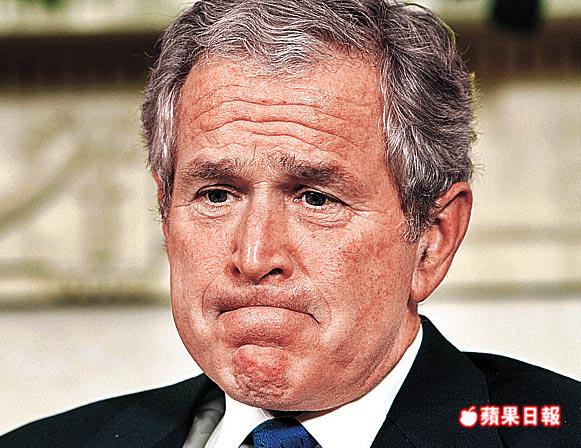
O.K.,這個問題未成熟──我們仍不知歐洲或美國救市計劃的真正形態,更遑論能否成功。但我們知道白高敦和財相戴理德已立定環球救市榜樣,讓其他富國追隨。
這是一個意料之外的轉捩點。在世界經濟事務上,英國政府很大程度只是個小夥伴。倫敦無疑不是世界最大金融中心之一,英國經濟規模卻比美國小得多,英格蘭銀行絕無聯儲局和歐洲央行的影響力。因此,你不會預期英國扮演領導角色。
但白高敦政府明顯願意對金融危機作出清晰思考,然後當機立斷。這樣清晰果斷絕非其他西方政府所能比擬,我們國家更不能。
今次危機本質是甚麼?細節複雜,但基本頗簡單。房地產泡沫爆破導致買了按揭債券的人損失慘重;這又令很多金融機構孭巨債,無力還錢,經濟所需的信貸資本只剩很少;問題金融機構試圖賤賣資產套現解決債務,卻又進一步推低樓價,令金融機構財政狀況更糟。
如何化解這個危機?資助業主,很得人心,但不能阻止壞債造成的經濟損失,也無法即時驅走市場的恐慌。這樣,很自然要做的是,由政府向金融機構注資換取,令政府成為股東之一,以解決資金不足問題。暫時局部國有化(銀行)是解決危機的方法,聯儲局局長伯南克私下也表示支持,但用7,000億美元救市的財長保爾森卻反對,說「這是失敗者的做法。」另一方面,他又建議政府購入有毒的按揭債券,思維看來有點混淆不清。
英國政府卻直搗問題核心,白高敦周三宣佈向銀行注資,擔保銀行間貸款,從宣佈救市方案一刻到提供資金,僅短短五天,英國反應之快讓人吃驚。歐洲其他國家也會相繼跟隨英國做法,保爾森也不得不接受(但顯然慢了幾拍!)
坦白說,我們不知道這個方案是否見效,但英國政府至少展示了清晰施政方向。我們不禁會問,為甚麼華府反而缺乏了方向呢?我們不能怪保爾森,他困囿於意識形態,共和黨政府一直主張政府少干預,一切留給市場處理。政府成為金融機構的股東,共和黨最深惡厭絕。小布殊政府內有識之士都被趕走,財政部沒有人會向保爾森說不。
幸運地,白高敦和他的官員仍有見識,他們會向我們展示如何應付這場危機。
12/10/2008,《紐約時報》
GordonDoesGood
HasGordonBrown,theBritishprimeminister,savedtheworldfinancialsystem?
O.K.,thequestionispremature—westilldon’tknowtheexactshapeoftheplannedfinancialrescuesinEuropeorforthatmattertheUnitedStates,letalonewhetherthey’llreallywork.Whatwedoknow,however,isthatMr.BrownandAlistairDarling,thechancelloroftheExchequer(equivalenttoourTreasurysecretary),havedefinedthecharacteroftheworldwiderescueeffort,withotherwealthynationsplayingcatch-up.
Thisisanunexpectedturnofevents.TheBritishgovernmentis,afterall,verymuchajuniorpartnerwhenitcomestoworldeconomicaffairs.It’struethatLondonisoneoftheworld’sgreatfinancialcenters,buttheBritisheconomyisfarsmallerthantheU.S.economy,andtheBankofEnglanddoesn’thaveanythingliketheinfluenceeitheroftheFederalReserveoroftheEuropeanCentralBank.Soyoudon’texpecttoseeBritainplayingaleadershiprole.
ButtheBrowngovernmenthasshownitselfwillingtothinkclearlyaboutthefinancialcrisis,andactquicklyonitsconclusions.Andthiscombinationofclarityanddecisivenesshasn’tbeenmatchedbyanyotherWesterngovernment,leastofallourown.
Whatisthenatureofthecrisis?Thedetailscanbeinsanelycomplex,butthebasicsarefairlysimple.Theburstingofthehousingbubblehasledtolargelossesforanyonewhoboughtassetsbackedbymortgagepayments;theselosseshaveleftmanyfinancialinstitutionswithtoomuchdebtandtoolittlecapitaltoprovidethecredittheeconomyneeds;troubledfinancialinstitutionshavetriedtomeettheirdebtsandincreasetheircapitalbysellingassets,butthishasdrivenassetpricesdown,reducingtheircapitalevenfurther.
Whatcanbedonetostemthecrisis?Aidtohomeowners,thoughdesirable,can’tpreventlargelossesonbadloans,andinanycasewilltakeeffecttooslowlytohelpinthecurrentpanic.Thenaturalthingtodo,then—andthesolutionadoptedinmanypreviousfinancialcrises—istodealwiththeproblemofinadequatefinancialcapitalbyhavinggovernmentsprovidefinancialinstitutionswithmorecapitalinreturnforashareofownership.
Thissortoftemporarypart-nationalization,whichisoftenreferredtoasan“equityinjection,”isthecrisissolutionadvocatedbymanyeconomists—andsourcestoldTheTimesthatitwasalsothesolutionprivatelyfavoredbyBenBernanke,theFederalReservechairman.
ButwhenHenryPaulson,theU.S.Treasurysecretary,announcedhisplanfora$700billionfinancialbailout,herejectedthisobviouspath,saying,“That’swhatyoudowhenyouhavefailure.”Instead,hecalledforgovernmentpurchasesoftoxicmortgage-backedsecurities,basedonthetheorythat...actually,itneverwasclearwhathistheorywas.
Meanwhile,theBritishgovernmentwentstraighttotheheartoftheproblem—andmovedtoaddressitwithstunningspeed.OnWednesday,Mr.Brown’sofficialsannouncedaplanformajorequityinjectionsintoBritishbanks,backedupbyguaranteesonbankdebtthatshouldgetlendingamongbanks,acrucialpartofthefinancialmechanism,runningagain.AndthefirstmajorcommitmentoffundswillcomeonMonday—fivedaysaftertheplan’sannouncement.
AtaspecialEuropeansummitmeetingonSunday,themajoreconomiesofcontinentalEuropeineffectdeclaredthemselvesreadytofollowBritain’slead,injectinghundredsofbillionsofdollarsintobankswhileguaranteeingtheirdebts.Andwhaddyaknow,Mr.Paulson—afterarguablywastingseveralpreciousweeks—hasalsoreversedcourse,andnowplanstobuyequitystakesratherthanbadmortgagesecurities(althoughhestillseemstobemovingwithpainfulslowness).
AsIsaid,westilldon’tknowwhetherthesemoveswillwork.Butpolicyis,finally,beingdrivenbyaclearviewofwhatneedstobedone.Whichraisesthequestion,whydidthatclearviewhavetocomefromLondonratherthanWashington?
It’shardtoavoidthesensethatMr.Paulson’sinitialresponsewasdistortedbyideology.Remember,heworksforanadministrationwhosephilosophyofgovernmentcanbesummedupas“privategood,publicbad,”whichmusthavemadeithardtofaceuptotheneedforpartialgovernmentownershipofthefinancialsector.
IalsowonderhowmuchtheFemaficationofgovernmentunderPresidentBushcontributedtoMr.Paulson’sfumble.Allacrosstheexecutivebranch,knowledgeableprofessionalshavebeendrivenout;theremaynothavebeenanyoneleftatTreasurywiththestatureandbackgroundtotellMr.Paulsonthathewasn’tmakingsense.
Luckilyfortheworldeconomy,however,GordonBrownandhisofficialsaremakingsense.Andtheymayhaveshownusthewaythroughthiscrisis.
救市應注資金融機構--真相時刻(MomentofTruth)
上月,當財政部對雷曼兄弟見死不救,我寫下評論指財長保爾森玩金融俄羅斯輪盤。子彈肯定已在彈膛上──雷曼兄弟倒閉只會令本已嚴峻的金融危機更加惡劣……
雷曼倒閉幾天已現後果,但主要決策者已浪費過去四周。現在他們已到了真相時刻:他們最好盡快做些事──其實他們這個周末最好宣佈一個協調的救市方案,否則世界經濟可能經歷自大蕭條以來最嚴重的崩圍……
保爾森提出動用7,000億美元向銀行購買「問題資產」──有毒按揭相關證券,但他永不能解釋為何這樣能化解危機。他反過來應提出很多經濟學家所認同的做去,即向金融機構直接注資:美國政府向金融機構提供做生意所需的資金,換來局部股權。
10/10/2008,《紐約時報》
午夜凶鈴麥凱恩嚇死我--3A.M.的電話
凌晨3時,美國白宮電話響起,對方說多個大型對冲基金快要崩潰,市場肯定動盪。你希望那位白宮主人接聽電話?
昨日提出的救市方案,比保爾森首次提出的好得多,但問題是,兩位總統候選人中,誰更有實力去聽那通電話?奧巴馬看來很有準備,但麥凱恩呢?嚇死我啦。
奧巴馬身邊有很多醒目又有經驗的智囊,例如魯賓。
麥凱恩(圖)──他不懂經濟的,他曾這麼承認和否認。但他沒有好顧問呀!他的首席經濟顧問是PhilGramm,當參議員時盡力使衍生工具免受監管,結果雷曼兄弟和美國國際集團AIG倒下了,他卻是麥凱恩財政部長屬意人選。
還有,9月15日,麥凱恩說美國經濟基礎很好──雷曼當日就出事,美林被收購了。保爾森推出救市方案數天後,麥凱恩又承認自己沒詳細看過內容,那只是三頁紙呀。
29/9/2008,《紐約時報》

布殊「幽默感」一流--掠奪未來(LootingTheFuture)
喬治布殊(GeorgeW.Bush圖)有一點值得一提:他的幽默感一流。在一次籌款活動,他說要殲滅伊拉克大殺傷力武器,又保證任期內撐起聯邦醫療保健制度……我們國家不曾試過同時開戰、增加農業補貼和推行昂貴的Medicare,而且,不但在財赤下,沒替支付這些項目訂下計劃,反而進行減稅。
他的管治是惡性循環,為了私營利益而騎劫公共政策。
前諾貝爾經濟學獎得主奧凱諾夫曾形容,公共政策是「一種掠奪」……喬治布殊政府和民主黨議員正領導一個掠奪黨……喬治布殊班子對選舉後如何經營美國無甚想法,正如攻陷巴格達後如何經營伊拉克一樣。他們會在情況崩潰後,不知如何是好。
5/12/2003,美國《紐約時報》
